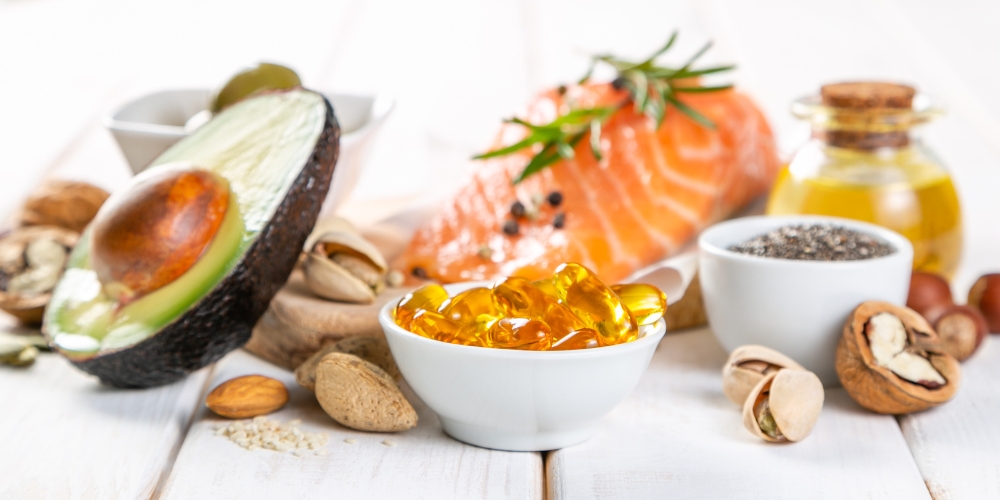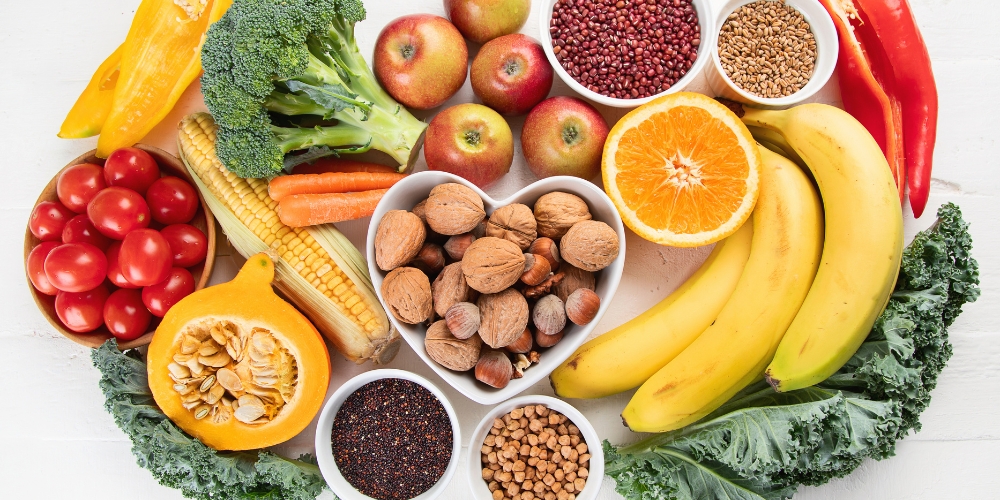Have you ever thought about why some people seem to glow naturally? It turns out that eating is equally vital as following a perfect skincare routine. The top five nutrients that experts and scientific studies both agree can support glowing skin are explained in this article. You’ll learn the health advantages of these nutrients and how simple it is to include them in your diet.
How Diet Impacts Skin Health
Your skin can often be a reflection of your overall health, and the foods you eat greatly impact how your skin looks. The building blocks of healthy skin cells can be found in nutrient-rich diets, which can support the hydration, structure, and elasticity of the skin.
Our largest organ, the skin “requires a balanced diet that includes adequate protein, essential fatty acids, and a variety of vitamins and minerals to maintain structure and its protective nature,” according to Shannon Costello, owner of Chef Shannon Nutrition and a plant-based registered dietitian nutritionist. Atopic dermatitis, acne, and psoriasis are just a few persistent skin diseases that our food may affect.
Nutrients for Healthy Skin
Curcumin

Turmeric’s golden color is the result of an element called curcumin. Beneficial compounds found in it may have anti-inflammatory, antibacterial, and antioxidant properties. Curcumin may potentially be a useful treatment for skin problems, based on recent studies.
A review of hundreds of studies, published in Nutrients in 2019, concluded that curcumin is a safe, natural therapy for wound healing, psoriasis, and some forms of dermatitis.
Studies also indicate that curcumin may help prevent “inflammaging,” or the aging-related rise in inflammatory biomarkers. While the evidence is limited, it suggests that curcumin administration may improve skin firmness, reduce photoaging, and promote collagen synthesis.
Use recipes like colorful Mango Smoothie Bowls or Turmeric Rice Bowls to increase your dose of curcumin.
Vitamin D

Because it can help lower inflammation and shield the skin from UV damage, vitamin D is essential for keeping healthy skin. Vitamin D is essential for healthy aging skin because of its anti-inflammatory and protective properties, according to a 2021 review published in the International Journal of Molecular Sciences.
According to Costello, “the ability of the skin to maintain homeostasis or a balance of all the elements in the skin, is influenced by vitamin D.” The inflammatory response brought on by age and continued exposure to the environment may also be inhibited by the vitamin.
“Active vitamin D3 metabolites can protect skin against the hazardous effects of skin aging-triggering agents, including [ultraviolet radiation] UVR, pollution, and microbial infections,” states Jessi Holden, M.S., RDN, a culinary dietitian and owner of The Kitchen Invitation.
Fatty fish, eggs, UV-exposed mushrooms, and fortified dairy products all contain vitamin D. Roughly 41% of the U.S. populace is lacking in vitamin D, so it very well might be useful to think about supplements on the off chance that you figure you may not be helping sufficient through diet alone — however converse with your primary care physician or dietitian before taking a stab at a novel, new thing.
Probiotics

Probiotics nourish the trillions of microorganisms in your gut and may have a greater impact on skin health than you realize.
A new 2023 survey from Supplements recommends that probiotics are especially helpful to our skin well-being and help in the treatment of skin breakouts, psoriasis wound mending, and numerous other skin issues. Additionally, it has been demonstrated that probiotics can reduce skin’s “transcutaneous water loss” and increase ceramide levels in skin cells, enhancing overall hydration and possibly providing relief for individuals battling dry skin.
One more 2022 survey from Supplements features concentrates on how recommended probiotics might assume a part in supporting help from psoriasis-like side effects, for example, skin redness, scaling, and skin thickening. In addition, the supplementation of probiotics improved the quality of life and inflammatory markers in 50 psoriasis patients in a randomized, double-blind study from Clinical Nutrition ESPEN that was highlighted in this review.
Make Berry-Kefir Smoothie or Creamed Cabbage & Sauerkraut by incorporating probiotic-rich foods like yogurt, kimchi, kefir, and sauerkraut.
Omega-3 Unsaturated fats

Sound fats like omega-3 unsaturated fats are your skin’s dearest companions. Holden states, “Omega-3 unsaturated fats are fundamental for skin wellbeing as they assist with keeping up with the skin’s lipid obstruction, keeping it hydrated and stout.” Omega-3s likewise contain calming properties that might assist with specific provocative skin conditions.
Costello talked about a study that was published in the Journal of Dermatological Science in 2015 and used fish oil supplements in a group of people who had atopic dermatitis, which is a chronic inflammatory skin disease that makes the skin dry and itchy. After 60 days of supplementation, they discovered that participants’ skin hydration increased by 30%, resulting in no itch-related scratching behaviors. Fish oil is wealthy in DHA and EPA, the two dynamic types of fundamental omega-3 unsaturated fats in the body,” Costello says.
A review published in 2020 by the Journal of Cutaneous Medicine and Surgery suggests that omega-3 fatty acids may also be particularly helpful in the treatment of psoriasis, skin ulcers, and acne.
Omega-3s are normally found in greasy fish like salmon or fish, flaxseed, chia seeds, pecans, and macadamia nuts. Try incorporating these skin-healthy fats into dishes like Seeded Bread or Walnut-Rosemary Crusted Salmon.
Fiber

Fiber is frequently connected to satiety, however, it might likewise be the overlooked yet truly great individual for your skin. Fiber may support your body’s gastrointestinal health and assist in maintaining a balanced gut microbiome, according to a 2020 research review published in Nature Reviews Gastroenterology & Hepatology.
Nicolle Cucco, M.S., RD, CDN, proprietor of Trovare Nourishment gloats, “When our stomach is blissful, our skin is additionally ready to work at its ideal and is possibly the motivation behind why there is developing exploration encompassing the ‘stomach skin pivot’.” This arising idea is very much like it sounds: an investigation of the connection between the stomach microbiome and our skin.
Costello adds, “The health of the gut may have a direct connection to one’s skin condition thanks to the gut-skin axis.” One of the best ways to support a healthy gut is to include enough fiber in your diet to diversify and feed the “good” bacteria that live there. Fiber is likewise known to create short-chain unsaturated fats, explicitly butyrate, as it travels through the stomach.”
According to a study published in Mucosal Immunology in 2022, these short-chain fatty acids support the metabolism of keratinocytes, which make up 90% of our skin’s outermost layer. This helps maintain the integrity of the skin barrier. A high-fiber diet may also help with skin allergies by strengthening the skin barrier, according to this study.
Eat a well-balanced diet that includes whole grains, fruits, vegetables, nuts, seeds, and legumes, all of which are high in fiber. Attempt recipes like fan-most loved Peanut Butter-Oat Energy Balls or a Mushroom and Tofu Sautéed food with vivid veggies.


